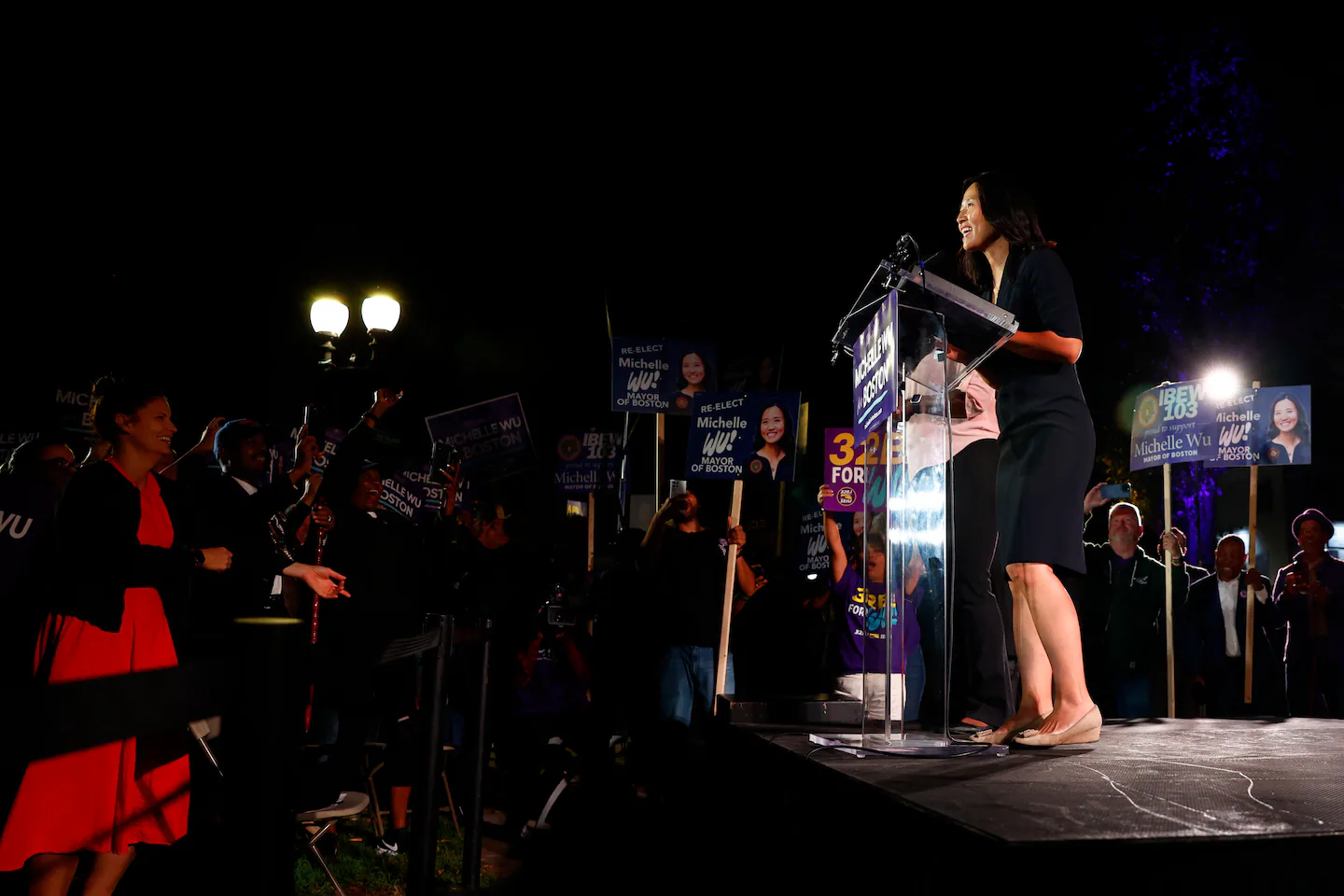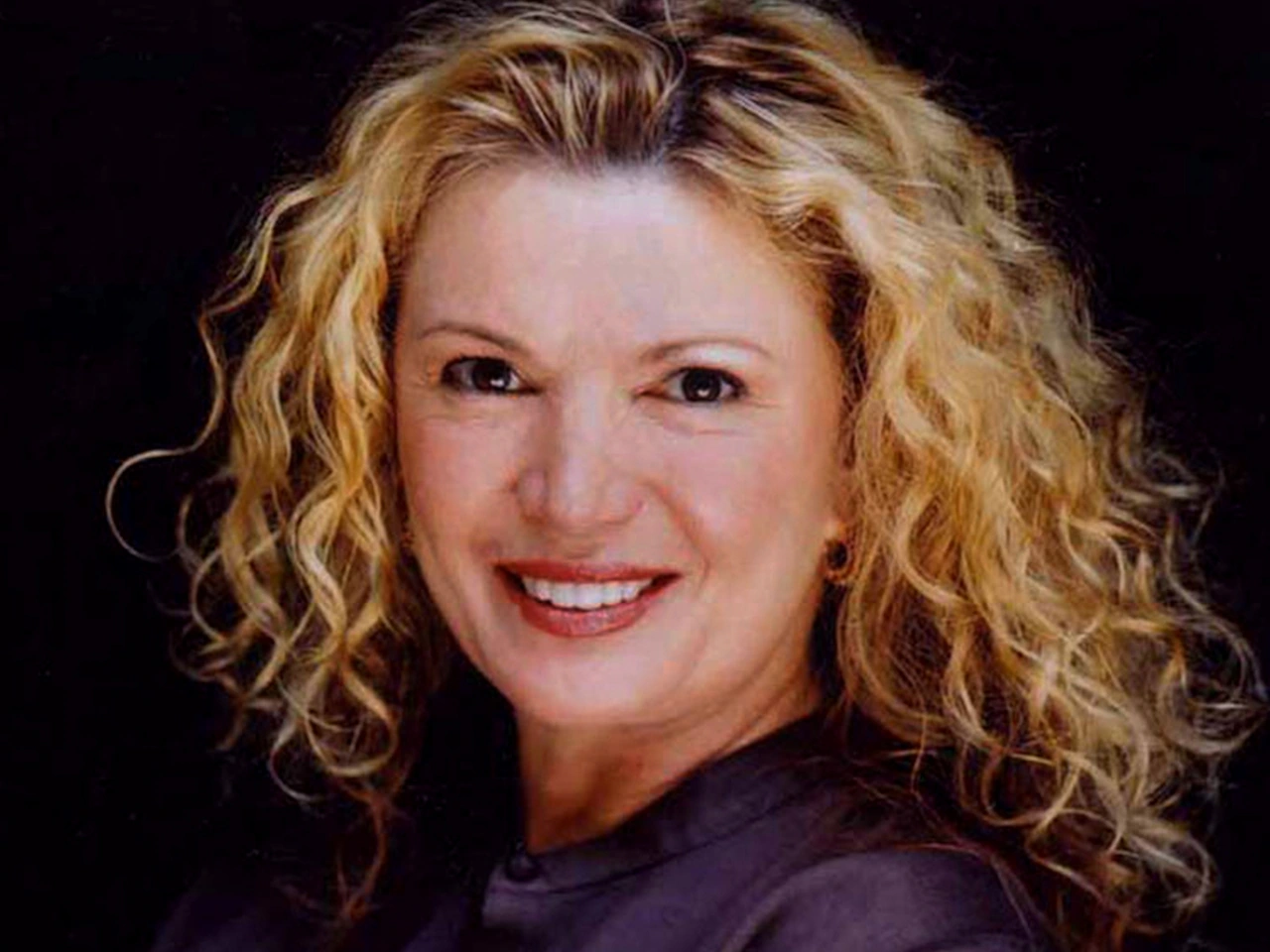Copyright The Boston Globe

Write to us at startingpoint@globe.com. To subscribe, sign up here. The Democratic Party is in a funk. Many of its most prominent national faces — from Joe Biden to its congressional leaders — are unpopular. Even the mayors of liberal cities like New York, Chicago, and Los Angeles are underwater with their constituents. Boston Mayor Michelle Wu is an exception. She’s set to clinch a second term unopposed next month. And as one former city official told my colleague Emma Platoff for a new Globe Magazine profile of the mayor, Wu has a level of support that would thrill a third-world dictator. How has Wu bucked the trend of unpopular Democratic leaders during a rough stretch for American cities? With help from Emma’s story, today’s newsletter suggests four factors. Becoming mayor usually takes savvy, but governing can alienate onetime allies. In Chicago, where Wu was born, Mayor Brandon Johnson has clashed with city officials, faced resistance from the school board, and had just a 26 percent approval rating in a recent poll. Wu, by contrast, seems to have won new supporters. Early tensions with Boston police have eased into a re-election endorsement from the city’s largest police union. Wu attends cultural events, takes voters’ questions on the radio, and posts on Instagram. Her approval rating in an Emerson College poll last month was 40 points higher than Johnson’s. “Michelle understands politics better than probably anyone I ever served with,” one former city councilor told Emma. And where other progressive mayors in Pittsburgh and St. Louis lost reelection, Wu hasn’t been afraid to tangle with the left. She did a U-turn on bike and bus lanes after public backlash and has stopped mentioning the “Green New Deal,” a progressive plan for combating climate change ridiculed by the right. At Saturday’s “No Kings” protest on Boston Common, Wu brushed off hard-left hecklers, saying, “This is Boston, where every voice is heard.” Mayors sometimes step in it. Los Angeles’ Karen Bass, who promised not to travel internationally if she became mayor, caught flak for visiting Ghana during a deadly wildfire this year. After New York Mayor Eric Adams publicly flirted with President Trump in an apparent bid to get the administration to drop federal charges against him, Adams’ approval ratings hit an all-time low. Wu seems highly attuned to how she appears in public, according to Emma’s profile. She’s poised and speaks deliberately. She brought her newborn daughter to a congressional hearing about Boston’s immigration policies. And she prepares meticulously, taking notes in meetings, color-coding her calendar, and calling allies. Public dissatisfaction over issues like crime and the cost of living have contributed to other mayors’ downfalls. Wu touts the decline in Boston’s murder rate on her watch and a program to turn office buildings into apartments. And as Emma reports, meaningful shares of voters who are dissatisfied with the city’s public schools, oppose bike lanes, and say Boston is unaffordable still approve of Wu. That suggests she’s getting credit for trying even on issues she hasn’t solved. Factors outside a mayor’s control can influence their political fate. For Wu, Trump’s return to the White House has been one of them, turning aggressive immigration enforcement and personal attacks into political foils. Wu has publicly tangled with Tom Homan, Trump’s border czar; with Attorney General Pam Bondi; and with Trump himself after he threatened to “take away” World Cup games set to be played near Boston. And her chief challenger ended up being Josh Kraft, a political novice whose family ties to Trump didn’t help his case. She beat Kraft so handily in the preliminary election that he dropped out of the race. Wu’s tenure hasn’t been flawless. Many Bostonians are disturbed by open drug use near Mass. and Cass or say Wu hasn’t done enough on housing. Some former supporters have become disillusioned, and some business leaders are unhappy. Wu’s political charms haven’t persuaded the state legislature to ease residential taxes, cap rents, or expand free T services. But Wu seems attuned to those criticisms. “I heard a lot on the campaign trail about things we need to do better,” she told Emma. And because of how Wu has handled the office so far, she’ll have a chance to tackle them in a second term. As other mayors have discovered, not everybody gets one. I recommend reading Emma’s full profile of Wu, which also includes details about Wu’s childhood and a telling interaction with a young constituent during her son’s soccer game. 🧩 1 Down: Sizzling | 🌤️ 65° Mostly sunny Jeffrey Epstein: A posthumous memoir by Virginia Giuffre, who died by suicide after accusing Epstein, Ghislaine Maxwell, and Britain’s Prince Andrew of abuse, is out today. Read takeaways. (BBC) Protester attacked: Police arrested a man who jumped out of his SUV and attacked a 77-year-old “No Kings” protester in Hyannis on Saturday, knocking him to the ground and leaving him with bruises and a black eye. The driver pleaded not guilty to assault and battery. A mall after all: A developer was set to turn the Watertown Mall into lab space. But as Massachusetts’ life science industry slows, those plans have been scrapped. Karen Read: Michael Proctor, the former State Trooper fired for misogynistic texts he sent about Read while investigating her, dropped his appeal to get his job back. Power of the purse: Governor Maura Healey released $125 million in local earmarks, reversing course after holding back the funding amid fiscal uncertainty. And the State Senate plans to vote this week to let a panel supervise county sheriffs’ spending and take over their offices if they spend too much. Shannon O’Brien: Back in control of the state’s chaotic Cannabis Control Commission after a legal fight, O’Brien spoke to the Globe about how she plans to bring order to the marijuana regulator. Vaccine wars: Health secretary Robert F. Kennedy Jr. appointed Retsef Levi, a polarizing MIT professor, to make policy recommendations about the COVID-19 shots Levi has vocally criticized. Levi says he’s looking for a “science-driven ‘middle’” on vaccines. Critics say his appointment is “like ‘1984.’” Plain text: Paul Ingrassia, a Trump nominee to lead a whistleblower agency, said in group texts that he had “a Nazi streak in me” and wants to end holidays that celebrate Black people, including Martin Luther King Jr. Day. Several Senate Republicans say they won’t support Ingrassia. (Politico) Going in reverse: The Trump administration canceled $110 million in funding to a Massachusetts company that aims to help equip electric vehicles with lithium-ion batteries, part of a broader effort to punish climate projects in blue states. Technical difficulties: An Amazon Web Services outage disrupted Netflix, food deliveries, Snapchat, and other online platforms and services for hours yesterday. (AP) By David Beard 🥫 R.I.P. ‘Ugo the Can Man’: When he retired, Ugo Ciannavei prowled the streets of Franklin and Walpole for years, providing a service and becoming a local legend, turning a multitude of “strangers into friends.” 🎭 It is what it is: Lear? Caesar? Beth Teitell asked scholars which tragic Shakespeare hero fits Bill Belichick. 🥜 Peanuts early? Giving toddlers peanut products has cut allergies, a study shows. (AP) 📷 As I See It: The Globe’s Stan Grossfeld slogs along with the muddy wives of Maine. 🐕 Ask the vet: Why does our goldendoodle go nuts when my wife and I hug? 🏸 Dink responsibly: Pickleball injuries are on the rise. (NPR) Thanks for reading Starting Point. This newsletter was edited by David Beard. ❓ Have a question for the team? Email us at startingpoint@globe.com. ✍🏼 If someone sent you this newsletter, you can sign up for your own copy. 📬 Delivered Monday through Friday.



